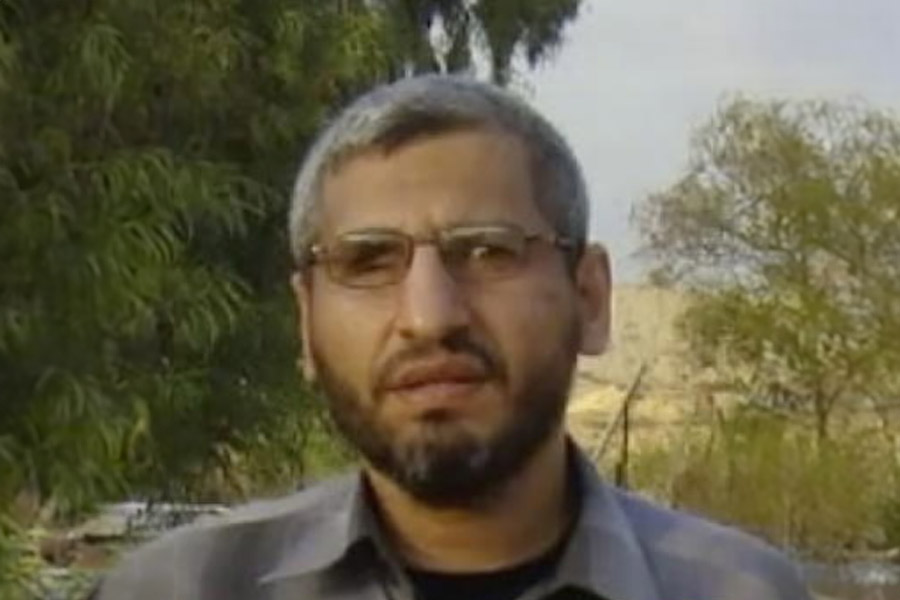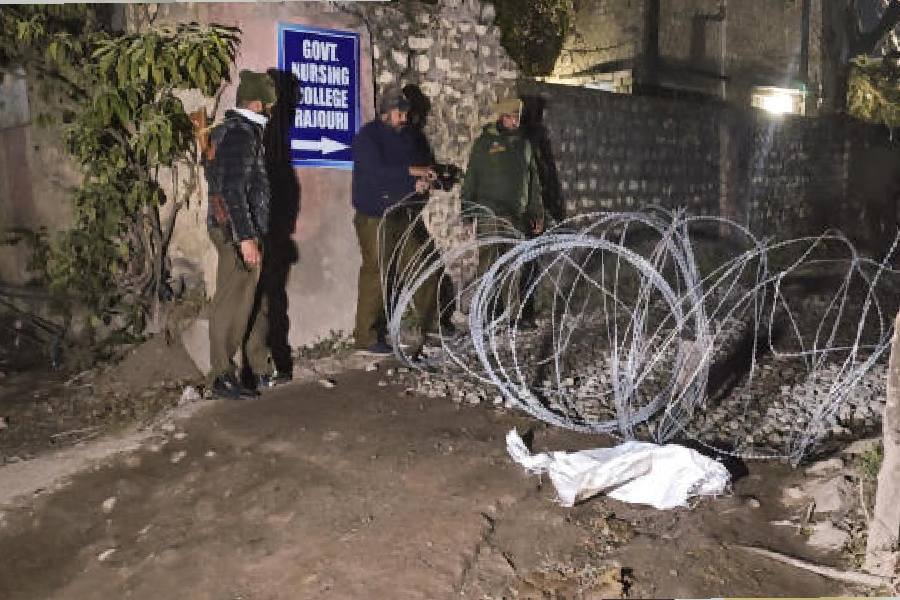The Israeli military said on Thursday that it had killed Muhammad Deif, the elusive leader of Hamas’s armed wing who is believed to have been a main planner of the October 7 attacks, in a bombardment in Gaza in mid-July.
Its announcement followed back-to-back strikes that killed two major foes of Israel in Iran and Lebanon, amplifying fears of a wider war in West Asia and endangering negotiations for a ceasefire in Gaza.
In a statement, the Israeli military said its conclusion that Deif was dead was based on an intelligence assessment, though it did not offer details.
Israel’s claim comes after weeks of speculation about the fate of Deif since an airstrike on July 13 in southern Gaza targeted the secretive Hamas commander. At the time, the Israeli military did not say for certain whether Deif had been killed, and Hamas has
so far not explicitly confirmed or denied the reports of his death.
“Following an intelligence assessment, it can be confirmed that Muhammad Deif was
eliminated in the strike,” the military statement said.
At least 90 people on the ground in the vicinity of the strike were also killed that day, according to the Gazan health ministry. Its tally does not distinguish between civilians and combatants.
Deif, who survived several previous Israeli assassination attempts, has been the No. 2 Hamas leader in Gaza. He is the highest-ranking commander in the armed group that Israel says it has killed in Gaza since it began its military campaign there after the October 7 attack.
Deif’s success at escaping previous Israeli efforts to kill him — he was believed to have lost an eye and been seriously wounded — enhanced his status in the eyes of some Palestinians.
He survived more than eight attempts on his life, according to Israeli intelligence. In 2014, an Israeli airstrike killed one of his wives and an infant son. In a brief 2021 conflict in Gaza, Israel’s military said it had tried to kill him several times.
When the October 7 attack was under way, Deif released a recorded speech saying that Hamas had launched the assault so that “the enemy will understand that the time of their rampaging without accountability has ended”.
Israel has made it clear that its goal is to destroy Hamas and take out leaders of the group and other enemies. Ismail Haniyeh, one of the most senior Hamas leaders, was assassinated in Iran on Wednesday.
Hours before that assassination, Israel said it had struck Fuad Shukr, a senior member of the Hezbollah, a Lebanese militia that is also backed by Iran and has been fighting a low-level war with Israel since October.
Haniyeh was mourned on Thursday in Tehran, where Iran’s supreme leader, Ayatollah Ali Khamenei, led funeral prayers, an honour reserved for the highest-ranking figures. Iran and Hamas both accused Israel of killing Haniyeh, and Khamenei ordered a direct strike on Israel in retaliation.
It was unclear exactly how Iran would respond, but the country’s officials have said the military is considering a combination of drone and missile attacks on Israeli military targets near Tel Aviv and Haifa.
Born in 1965 to a poor Palestinian family, Deif grew up in the Khan Younis refugee camp and joined Hamas as a young man, around the time the group was founded in the late 1980s.
He quickly rose through the organisation’s ranks, developed a reputation as a master bomb-maker and orchestrated several attacks on Israel, including a series of deadly bus bombings that undermined the Israeli-Palestinian peace process in the mid-1990s.
Analysts credit him with transforming Hamas’s military wing, the Qassam Brigades, into a powerful and well-organised fighting force with tens of thousands in its ranks.
Since October, Israel has again had Deif in its crosshairs, killing his deputy, Marwan Issa, in March.
In May, Karim Khan, the International Criminal Court’s chief prosecutor, requested a warrant for Deif’s arrest, accusing him and two other Hamas leaders of war crimes and crimes against humanity. The prosecutor also sought arrest warrants for Israel’s Prime Minister, Benjamin Netanyahu, and its defence minister, Yoav Gallant.
Deif spent decades underground in the tunnel network that typically shields Hamas leaders, according to Israeli intelligence officials, and had not been seen publicly in years. But officials recently said the Israeli military believed that he had developed health problems that were forcing him to spend more time above ground.
The strike that the Israeli military said killed him was authorised after prolonged surveillance of a house in southern Gaza where another top Hamas lieutenant, Rafa Salameh, was believed to be staying with his family, according to Israeli officials.
After learning that Deif appeared to be at the location, Israeli fighter jets struck with at least 5 precision-guided bombs, the officials said. Israel has said Salameh was also killed. That evening, Netanyahu said an airstrike had targeted Deif but that there was not yet “absolute certainty” as to whether he had been killed.
“His hands are steeped in the blood of many Israelis,” Netanyahu said. “At the beginning of the campaign, I laid down a rule: The Hamas murderers are dead men, from the first to the last.”
New York Times News Service











